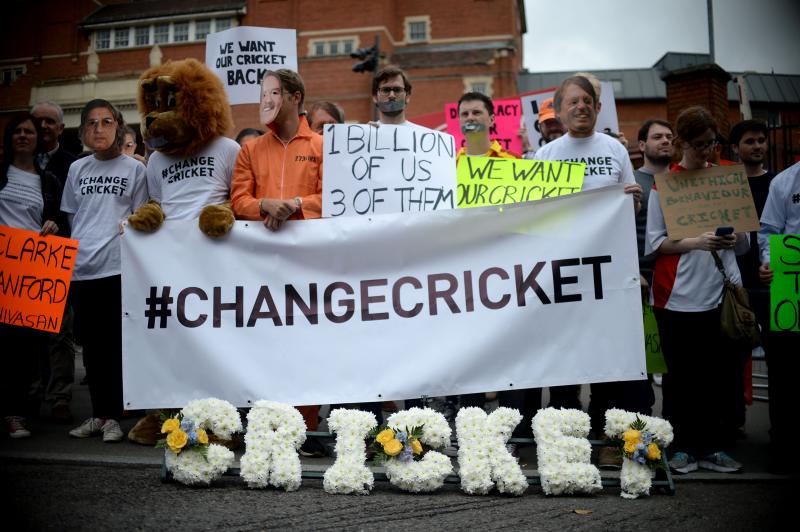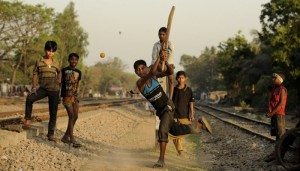Boar Film Interview: director Sam Collins (‘Death of A Gentleman’)
Sam Collins is a freelance journalist, director and writer, known for his work on the cricket documentary Death of a Gentleman (2015).
Boar Film: What motivated you to make this story a film rather than a written piece of journalism?
Sam Collins: We found that several books had been written but although great were long and complicated to read so we wanted something to appeal to a younger audience as well as the widest possible audience. We wanted something that would stand the test of time and it was also cheaper to make a film. With social media the opportunities to easily publicise the film were too good not to use.
BF: Can you talk about the filming process and how you got around any difficulties?
SC: It took us 3 years and the constant need to raise money was stressful. It’s also complicated to pin down the story in 90 minutes as we found the story changing with what we kept discovering. A key thing was to understand and filter the advice we were getting as well as sticking to what we wanted in the film.
Also we made the choice to be in the film which we feel provides a way to connect but were gambling on that viewers would relate to others situating themselves as an outsider in the film. We were given loads of advice but I would say to stick to your gut instinct that an audience are going to connect but importantly you can’t please everybody. We saw the film as an invite to the audience and having a conversation with them despite it being a polemic. We really had a heartfelt approach and wanted the audience on our side of this thing we’ve created. The thing with an audience is that if they sense something is wrong they can totally switch off and when it’s right they don’t notice.
We are a device used to tell the story and we hope we’ve got the balance right and the viewer can empathise. We found that it was important to trust in your own instincts but listen to the people who’ve been there and done it. We were in the edit room for 2 years and there was a lot of trial and error. We were very lucky and I personally believe in the power of journalism and things happening because of people. Harry Evans is incredibly inspirational. It’s brilliant to see people who are determined and contributing.
BF: Any plans for making more documentary films in the future?
Documentary filmmaking is an incredible world but very difficult to make money in. There needs to be a reason to make a film. We were lucky because we were able to fund it. It’s a long process so you need to believe in what you’re doing so the passion pulls you through at difficult times.
BF: What stories inspire you as a journalist and as filmmaker and are these different?
SC: You encounter a lot of stigma about a film about cricket. I think there’s irony in that there’s only a few stories to be told. Virunga (directed by Orlando von Einsiedel) is about a national park in conga with a British oil firm trying to influence the oil assessment. It’s a story that s about something very valuable to a lot of people that acquires momentary value and the attempts to exploit that. I am naturally drawn to that aspect and really we made a film about people within that world. If you’ve got an opportunity to make a difference that keeps you going through the low moments. We’ve got heroes, villains and a couple of ambiguous characters but nothing is ever black and white. As we did not spend ages scripting the film we made that gamble to be filming for hours, but when we capture that one moment that reveals something, the glint in the eye or the smile or whatever, it’s suddenly great thing because you know that it communicates so much and you see a lot of that in the documentary.
With films like ours we want people to think of their role in the structure. Fans need to be not as passive because there are more opportunities to voice their opinions. We have a choice everywhere to recognise politically or in terms of leaches on couches to recognise our place in the structure of society.
BF: Where do you hopefully see people power influencing spectating sports over time?
SC: I think documentary films made by people like Adam Curtis are a great example of paradoxes of democracy because you switch off and watch The Apprentice. Sport then is intersecting shows like The Apprentice or Strictly Come Dancing because people can advertise. The more we watch as an audience the more we grow but the paradox is that these things fall apart because the more addicted we get to watching. With films like ours we want people to think of their role in the structure. Fans need to be not as passive because there are more opportunities to voice their opinions. We have a choice everywhere to recognise politically or in terms of leaches on couches to recognise our place in the structure of society. There is great potential if people can work out to harness a step further of how to use people power to really influence and change things.
You can follow Sam Collins on twitter at @sampsoncollins.



Comments